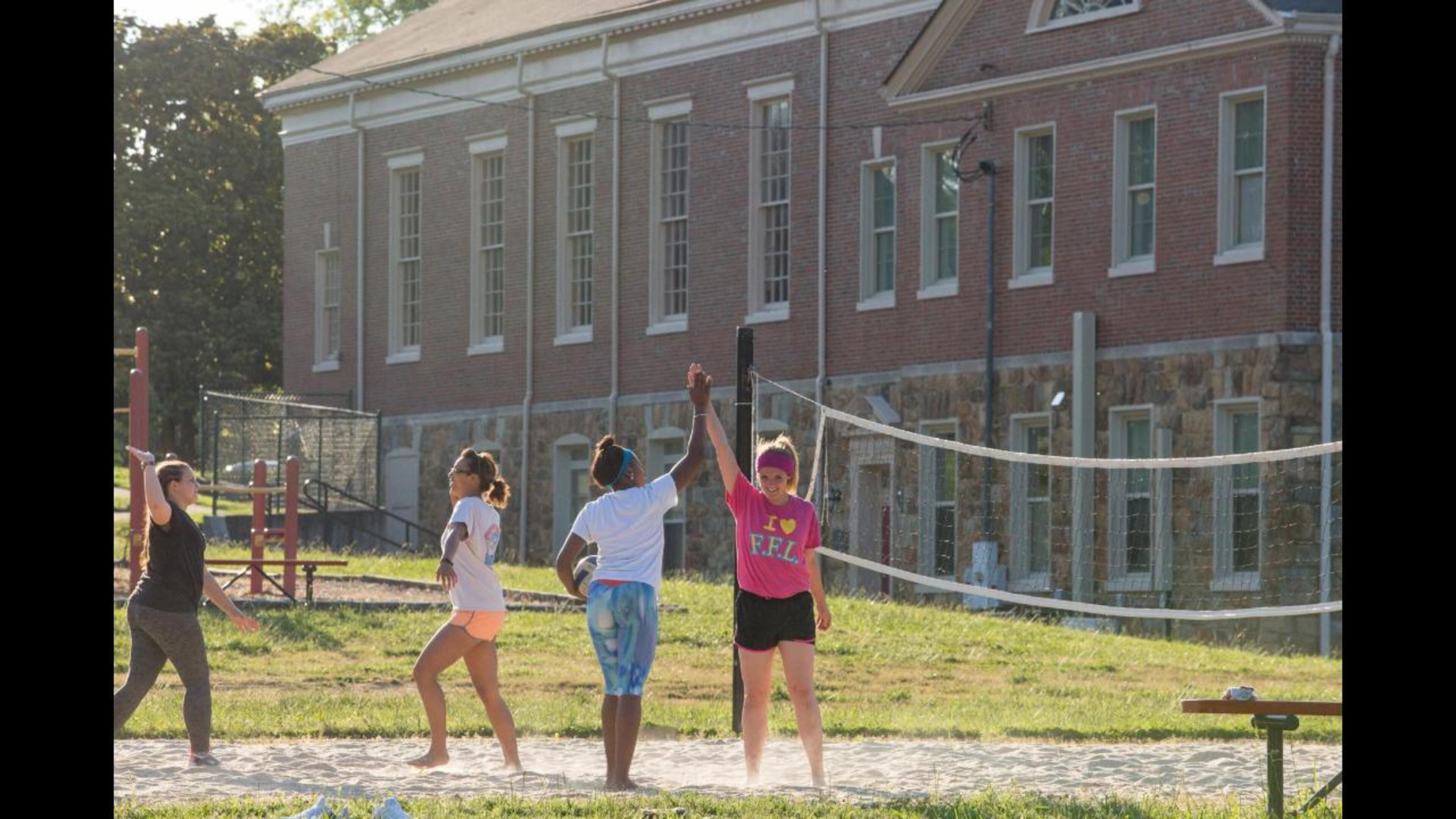RHONE: Murphy-Harpst 100-year milestone built one child at a time

She was the oldest of three sisters who had all been in the foster care system since 2019.
The struggling teen had been involuntarily committed several times after posing a threat to herself. And it seemed like she would continue on that trajectory upon her arrival at Murphy-Harpst Children’s Center in Cedartown.
But after returning to the residential facility from the hospital, something in her shifted. She set a goal: no more hospital visits for at least one year. The young woman celebrated her accomplishment the following spring with a skating party and meal with fellow residents and staff.
This story, published online by Murphy-Harpst Children’s Center using the pseudonym “Erin” for the young woman, is a reminder that success is all about the small moments that lead to major milestones.
For 100 years, Murphy-Harpst has served neglected children in North Georgia. And each of those years is built on stories like Erin’s, which are intertwined with the history of the two women founders, Ethel Harpst and Sarah Murphy, who devoted their lives to caring for abandoned children.
Murphy-Harpst strives to be an escape from the social ills that leave about 1,100 children each year in state custody across Georgia’s 159 counties. For some children, this is the place where they may see their first sunset, have a birthday party for the first time or celebrate Christmas with gifts.
“To see them experience those types of things that we see as normal is very fulfilling,” President and CEO Scott Merritt said. “When they are able to go to college, reunite with their families or get adopted, it is energizing.”

Orphanages have a complex history in America and some of our beliefs about child welfare evolved from fictional characters like Little Orphan Annie or the siblings in “Party of Five.” Those stories may leave us with a warped viewpoint “putting the responsibility for repairing harm in the hands of the vulnerable,” said Kristen Martin, writing for Slate. Martin is the author of “The Sun Won’t Come out Tomorrow: The Dark History of American Orphanhood,” to be released in January.
To survive for 100 years, Murphy-Harpst has had to evolve to meet the changing needs of children and a changing child welfare system, but the foundation set by the two founders has remained at the heart of all they do.
Harpst, an educator from the Georgia-Alabama foothills, began taking in motherless children 10 years after she arrived in Cedartown to run a public school and church mission.
In 1924, a friend gifted her a seven-room home on two acres of land to house 21 children under her care. Over the next few decades, generous benefactors funded additional buildings for the Ethel Harpst Home, which operated under the Women’s Division of the Methodist Church. Harpst retired in 1951 and died in 1968 after a long illness.
Just 13 miles to the east, Sarah Murphy was on a similar journey.
The Rockmart native and her husband saved enough money to buy a five-room house on an acre of hilly land where they built a K-12 school. Murphy was a teacher until her daughter died tragically in 1934. Filled with grief, Murphy — who by then had taken in 18 orphaned children — established the Sarah Divinia Murphy Home, the only orphanage in Georgia serving Black children. Sarah died in 1954 before a new building, rebuilt after a fire, could be occupied.
In 1961, the Women’s Division of the Methodist Church took over the property, and after some deliberation board members decided to merge the two programs in 1984, establishing the Murphy-Harpst Children’s Center.
Incorporating the mottos of the two founders — “I’ll do the best I can,” from Harpst and “We’ll make room,” from Murphy — staff at the newly formed facility took on the mission of two women who had never met in life but whose legacies were interwoven.
In 1987, Murphy-Harpst was certified as a residential treatment provider. In 2003, Murphy-Harpst established specialized foster care. A transitional living program was added in 2016 and a GED program in 2018.

At any given time, Murphy-Harpst serves about 100 children, Merritt said. On the 160-acre campus, residents receive services including equine and recreation therapy, spiritual development and an education at York Academy.
They also find understanding and assurance that their past isn’t their fault.
“So many kids come in very angry because of what has happened to them,” said Merritt. “They are resilient but need adult care and leadership, and that is one of the things we provide at Murphy-Harpst — an environment where they can deal with the trauma.”
Last year, Murphy-Harpst began partnering with local communities and government agencies to open group homes across the state where four to five children live with trained foster parents who rotate every two weeks for a period of nine to 12 months. Plans are also underway to develop a program for children with autism, Merritt said.
These innovations will help Murphy-Harpst continue serving Georgia children for years to come, and the stories of each child that comes through their doors will continue to build on that success.
“We are not perfect,” Merritt said. “We make mistakes, but we are doing the best we can for the kids.”
As the mottos of Murphy and Harpst suggest, success isn’t only found in a happy ending but also in the willingness to try to make things better.
Read more on the Real Life blog (www.ajc.com/opinion/real-life-blog/) and find Nedra on Facebook (www.facebook.com/AJCRealLifeColumn) and X (@nrhoneajc) or email her at nedra.rhone@ajc.com.



